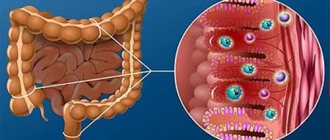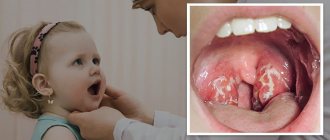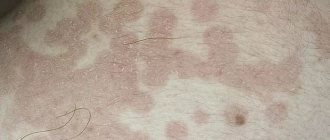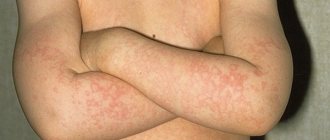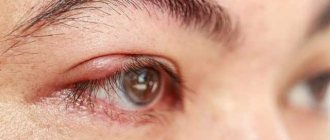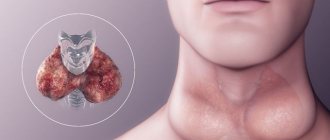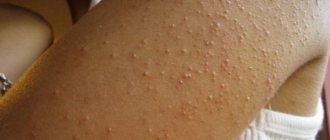Bitterness in the mouth is a sign of many diseases affecting different body systems. These may be gastrointestinal disorders, pathologies of the endocrine system, as well as diseases of the oral cavity. To decide which is best to take tablets for bitterness in the mouth, it is necessary, first of all, to establish the cause of the appearance of this symptom.
Tablets for bitterness in the mouth
Causes of bitterness in the mouth
Among the causes of bitterness in the mouth, one can identify internal ones - arising as a result of various diseases of the functional systems of the body, and external ones - provoked by the influence of unfavorable factors. These include:
- Gastrointestinal diseases: reflux esophagitis, chronic gastritis, chronic cholecystitis, hepatitis and other liver diseases.
- Infections with parasites – disruption of the intestinal and biliary tract due to helminths.
- Endocrine pathologies: hypothyroidism, hyperthyroidism, diabetes mellitus.
- Oral diseases: stomatitis, caries, periodontal disease, gingivitis.
- Diseases of the ENT organs caused by bacterial agents: sinusitis, sinusitis, chronic tonsillitis.
- Intoxication in infectious diseases.
- Foodborne toxic infections.
- Chemical poisoning.
- Side effects after taking medications.
- Psychosomatic or neurological disorders.
- Toxicosis during pregnancy.
Bitterness may appear after eating certain foods that irritate the receptors of the oral cavity and the mucous membrane of the esophagus and stomach. For example, after a meal richly flavored with spices - garlic, paprika, hot pepper, etc.
Bitterness in the mouth may occur due to eating garlic
The cause of the bitter taste in the mouth can be assumed based on the presence of accompanying symptoms.
Table 1. Possible diseases
| Disease | Associated symptoms |
| Stomach pathologies | Heartburn, nausea, periodic attacks of pain in the epigastric region. |
| Endocrine diseases | Weakness, increased fatigue, drowsiness, brittle nails, dry skin, severe thirst, especially in the morning. Menstrual irregularities in women, decreased libido in men. A sharp decrease or increase in body weight. |
| Liver diseases | Pain and heaviness in the right hypochondrium, intolerance to fatty foods, jaundice. |
| Gallbladder disorders | Pain in the right hypochondrium, radiating to the back and shoulder, occurring after 30 minutes. after eating, nausea, belching. |
| Dental diseases | Bleeding gums, painful ulcers on the oral mucosa, toothache, the presence of carious, decayed teeth in the oral cavity. |
| Pathologies of ENT organs | Enlarged tonsils, nasopharyngeal congestion in the morning, purulent plugs in the tonsils, frequent acute sore throats. |
| Intoxication | Increased body temperature, tachycardia, decreased blood pressure, pain in joints and muscles, dry skin, nausea, vomiting, abnormal bowel movements, general weakness, even loss of consciousness. |
| Poisoning | Dyspeptic syndrome: nausea, vomiting, increased gas formation, stool disturbances, rumbling in the abdomen. |
| Toxicosis during pregnancy | Weakness, morning sickness, irritability, breast tenderness, delayed menstruation. |
Bitterness in the mouth may appear after taking certain medications - antibiotics, antifungal and antiarrhythmic drugs, both during a long course of treatment and several hours after taking a single pill.
Help : an unpleasant symptom often occurs in smokers with a long history of smoking. Bitterness in the mouth most often appears in the morning after sleep, but can also appear in the evening, after smoking a large number of cigarettes. A bitter taste in the mouth may appear after drinking a large amount of alcohol and indicate alcohol intoxication.
Video - Bitterness in the mouth: reasons
Traditional methods
Traditional medicine offers its own ways to combat bitterness in the mouth:
- drink made from celery (150 ml), carrots (200 ml), parsley (6 tablespoons). Drink during the day;
- decoction of flaxseeds. Drink a glass twice a day;
- infusion of calendula flowers. Pour one tablespoon of dill. Take a chilled glass four times a day;
- chew cinnamon or cloves;
- infusion of chamomile. For 5 grams of flowers you need one glass of boiling water. Drink three times a day half an hour before meals;
- collection for bitterness in the mouth. Ingredients: chamomile (150 g), cinquefoil root (200g), yarrow (150g). Thirty grams of the mixture of ingredients pour 400 ml of dill. Leave for 30 minutes, then strain. Drink instead of tea;
- a useful remedy, the components of which are: aloe leaf juice, ground viburnum, honey. Mix the ingredients in equal quantities and take one tablespoon before breakfast.
Gallery of folk remedies for fighting bitterness
A decoction of chamomile, cinquefoil root, and yarrow
Flaxseed decoction
Chamomile infusion
Cinnamon or cloves
Drug treatment of bitterness in the mouth
The tactics for treating bitterness in the mouth are chosen by the doctor after diagnosing the body and eliminating the cause of the symptom. Depending on the underlying disease, the following groups of drugs may be prescribed:
- Antacids: Almagel, Phosphalugel, Maalox.
- Antisecretory drugs: Omeprazole, Omez, Esomeprazole, Pantoprazole.
- Choleretic medications: Allohol, Holagol, Cholenzym, Holonsas, Gepabene, Odeston.
- Hepatoprotectors: Hofitol, Siliverin, Essentiale-forte, Hepatofalk-planta.
- Adsorbent intestinal preparations: Enterosgel, Activated Carbon, Polyphepan.
- Eubiotics: Linex, Hilak-forte, Gepafor, Lactofiltrum.
To treat diseases of the ENT organs and oral cavity that cause a bitter taste in the mouth, you need to consult a doctor. In the treatment room, the doctor will perform manipulations aimed at eliminating the source of infection - sanitation of the oral cavity, nasopharynx or tonsils, removal of carious teeth.
If bitterness in the mouth is one of the symptoms, along with fatigue, drowsiness, brittle nails, hair loss, a sharp decrease or increase in body weight, you should consult an endocrinologist. This may be a sign of hypothyroidism, a deficiency of thyroid hormones, or hyperthyroidism, an excess of thyroid hormones.
Reference: hyperthyroidism is a genetically determined disease of an autoimmune nature. The first signs of the disease may appear in women in the postpartum period.
Hyperthyroidism
Let us consider in detail the above groups of drugs that help cope with the bitter taste in the mouth.
Antacids
Medicines from the antacid group are used to reduce the acidity of gastric juice in gastritis with high acidity and reflux esophagitis - insufficiency of the esophageal sphincter. They are available in the form of gels:
- Almagel.
- Maalox.
- Phosphalugel.
Almagel
Maalox
Phosphalugel
Enveloping the wall of the esophagus, they protect its mucosa from the pathogenic effects of hydrochloric acid and pepsin. They should be taken if bitterness in the mouth occurs together with heartburn or after belching.
Directions for use: 3 times a day, an hour after meals.
Antisecretory drugs
Medicines in this group are prescribed to patients with gastritis and reflux esophagates to quickly relieve heartburn attacks. When taken orally, they provide pronounced and long-lasting suppression of gastric secretion. The drugs are available in capsule form:
- Omez.
- Omeprazole.
- Emanera.
- Esomeprazole.
Omeprazole and Omez
These medications should be used if heartburn is accompanied by a bitter taste in the mouth, or if a bitter taste remains after belching.
Method of administration: 2 times a day, 1 capsule for 4 – 6 weeks.
Choleretic medications
For functional disorders of the gallbladder, cholecystitis, and pathologies of the biliary tract, choleretic drugs are prescribed:
- Allohol.
- Holenzim.
- Gepabene.
- Odeston.
Allohol
Medicines normalize the amount of bile, relieve spasm of the gallbladder and bile ducts, facilitating the flow of fluid into the intestines. If pain along with bitterness in the mouth is not relieved by taking antacids, then medications from this group can help.
Directions for use: 1 tablet 3 times a day after meals for 3 to 4 weeks.
Hepatoprotectors
For liver dysfunction associated with diseases such as hepatitis and hepatosis, hepatoprotectors are prescribed. Medicines restore the integrity of liver cells, protect the liver from the negative effects of pathogenic agents and chemicals, thereby improving metabolism. Medicines in this group include:
- Essentiale forte.
- Phosphogliv.
- Hofitol.
- Siliverin.
- Phosphonziale.
Essentiale forte
They are prescribed to patients with liver and gall bladder diseases, as well as in severe toxic conditions.
Method of administration: the dosage is determined by the attending physician.
Adsorbents
Adsorbents act directly in the intestines; they remove toxins, heavy metal salts, and food allergens from the body. Bitterness in the mouth associated with food poisoning and various types of intoxication, incl. alcohol, is successfully eliminated after taking adsorbent drugs:
- Enterosgel.
- Polyphepan.
- Activated carbon.
Enterosgel
To improve the clinical effect after taking adsorbents for food poisoning and intoxication, it is recommended to undergo a course of treatment with eubiotics.
Method of administration: the dose is calculated in accordance with the instructions.
Eubiotics
Bitterness in the mouth may be a consequence of intestinal dysbiosis. To suppress the microbial microflora of the intestine, it is recommended to take eubiotics - medications containing cultures of live lactic acid bacteria:
- Linux.
- Lactofiltrum.
- Hilak-Forte.
- Hepaphor.
Linex
Eubiotics populate the intestinal microflora of the intestine, restoring the biocenosis in the gastrointestinal tract, completely eliminating dysbiosis and its symptoms.
Method of administration: 1 capsule 3 times a day for 15 – 30 days.
Important: medications are not a panacea for bitterness in the mouth; even if the medication successfully eliminates the bitter taste in the mouth, you should not delay visiting a specialist. It is not the symptom that needs to be treated, but the disease itself.
What diseases cause bitterness
In most cases, the rancid taste comes from bile released by the body into the esophagus. In a normal state, this phenomenon does not occur; an abnormal amount of bile is a typical sign of diseases of the gastrointestinal tract.
| Disease | Description, symptoms |
| Pathologies of the bile ducts, liver | Bile is produced by the liver and is gradually excreted into the gallbladder through the bile ducts, and, if necessary, supplied to the small intestine. If malfunctions occur in the functioning of any of the listed organs, such as the presence of gallstones, deterioration of motility and patency of the biliary tract, stagnation of the substance occurs. When overfilled, the gallbladder contracts and pushes the accumulated bile into the esophagus, which causes bitterness. |
| Cholecystitis | A rancid taste is one of the common symptoms in the presence of inflammatory processes in the gallbladder. May be accompanied by severe pain in the right hypochondrium, dry mouth, yellow, sometimes white coating on the tongue. |
| Liver pathologies | The peculiarity of the organ’s work is that in the initial stages, excessive stress on it may not manifest itself in symptoms. The fact that the liver cannot cope becomes noticeable later, by more obvious signs - changes in complexion, pain. Bitterness is one of the few signs of possible diseases. If it is present regularly, it should be examined. |
| Diseases of the intestines and stomach | In such cases, rancidity in the mouth is a secondary symptom. With the development of gastritis, ulcers, duodenitis, inflammation of the intestines, due to the relationship with other organs, the outflow of bile is disrupted, which is why the phenomenon occurs. |
Accurate diagnosis, which doctor to contact
Complaining of a bitter taste in the mouth, the patient goes to the gastroenterologist’s office, where he is carefully questioned, examined, and the abdominal organs are palpated. The patient is asked to donate urine and blood to determine the level of glucose, antibodies, electrolytes and other indicators, depending on the accompanying symptoms.
Instrumental methods will require ultrasound examination, fibrogastroduodenoendoscopy to visualize the mucous membrane, take pictures and biopsy. Liver tests can answer many questions that interest a doctor (about the level of bilirubin, cholesterol, and a number of enzymes). The pH-metry method determines the acidity of the gastric environment. Based on the results obtained, and after consultation with other specialists, tactics and treatment regimens are developed.
Treatment
When bitterness appears in the mouth after eating, the causes and treatment will differ from those during pregnancy and other conditions.
Article for you:
Kidney stones - symptoms, diet, proper nutrition, pills that break up stones, all the secrets
Therefore, there are no uniform recommendations on this matter, and treatment tactics are conventionally divided into three components:
- General recommendations regarding routine, nutrition and lifestyle;
- Drug therapy is designed to improve the functioning of the gastrointestinal tract;
- Traditional medicine recipes that can serve as an aid to basic drug therapy, or can be an independent method of getting rid of this unpleasant symptom.


